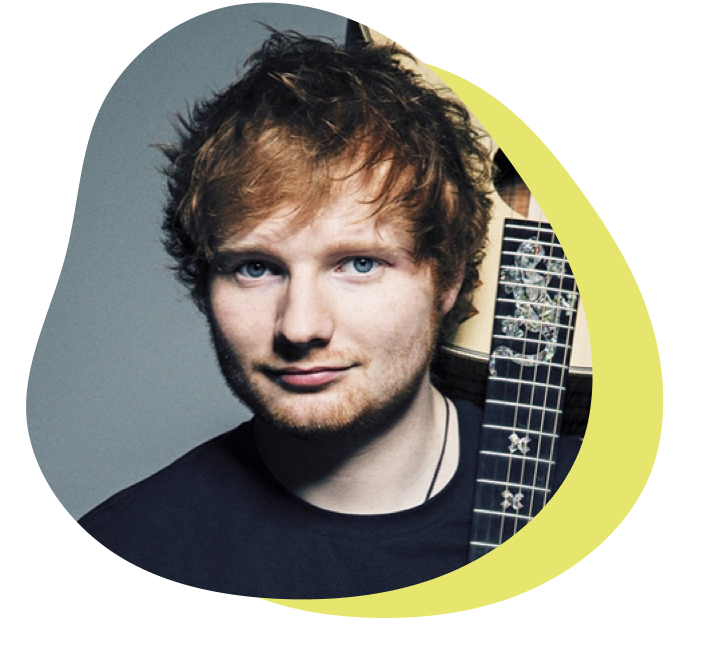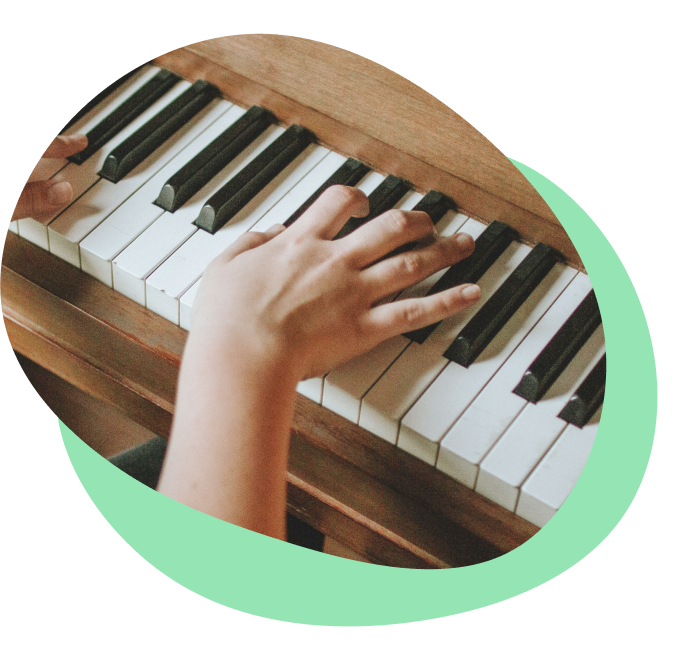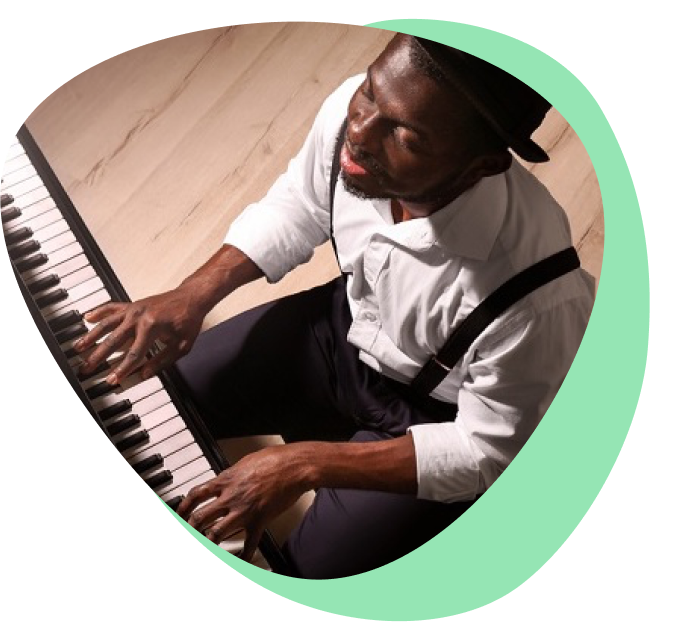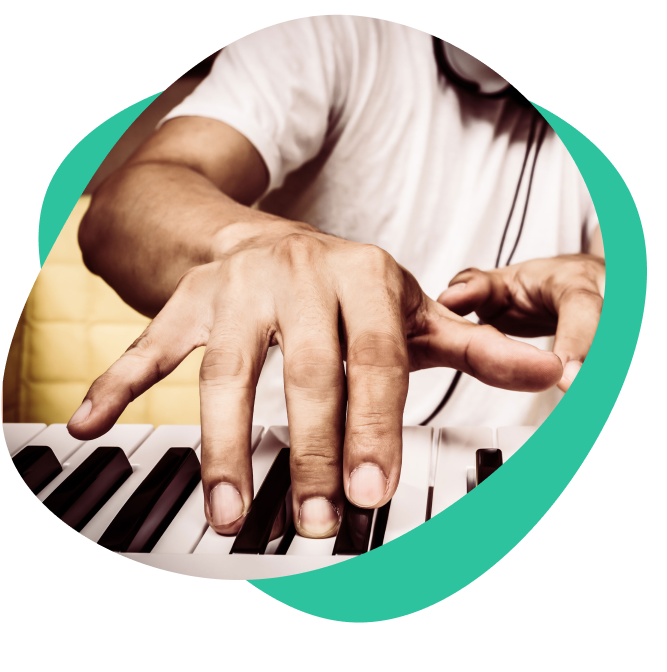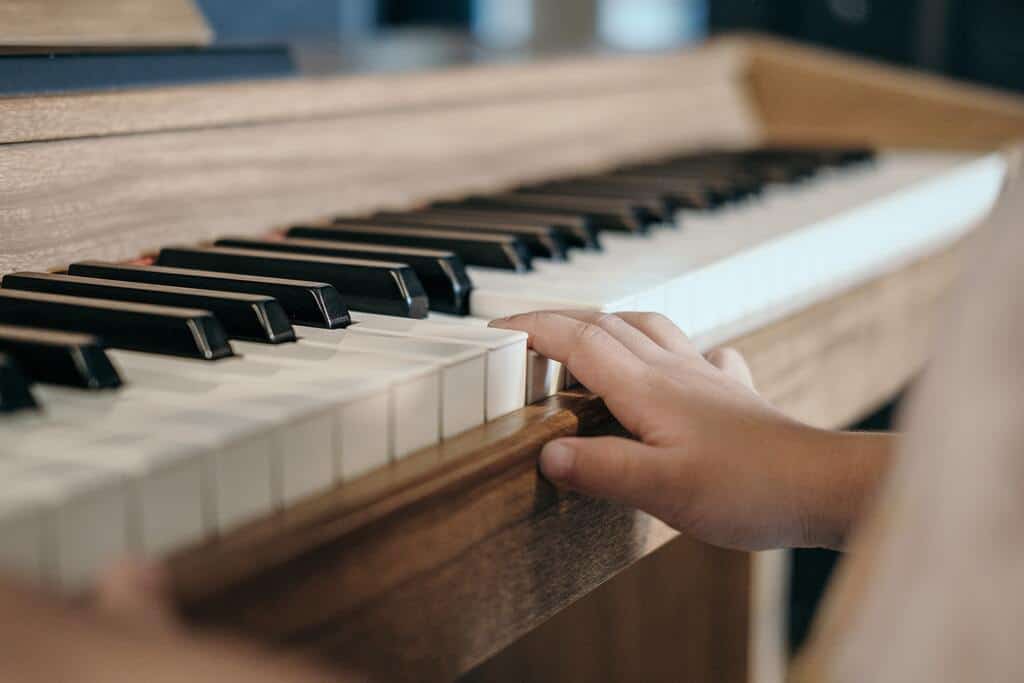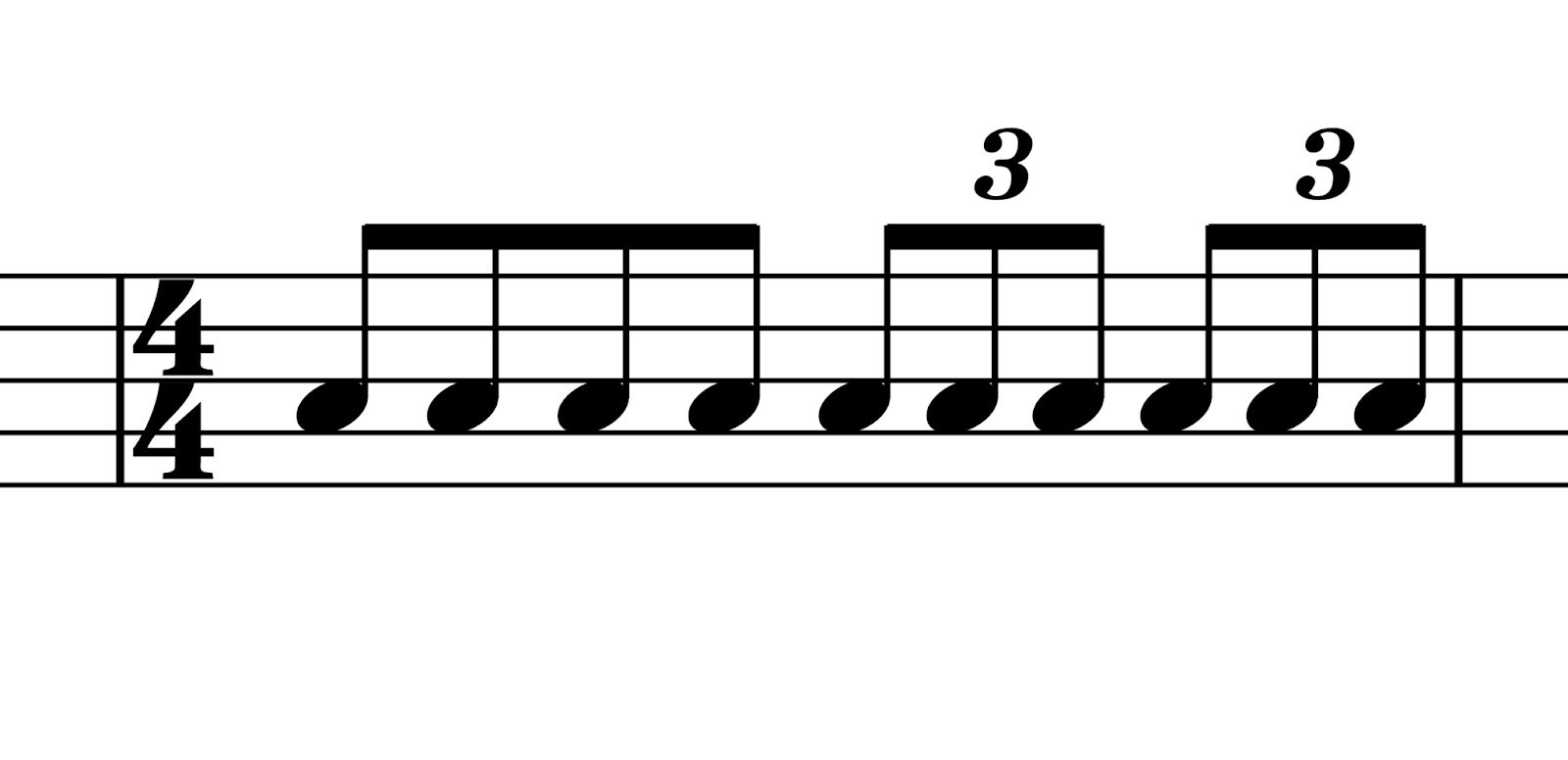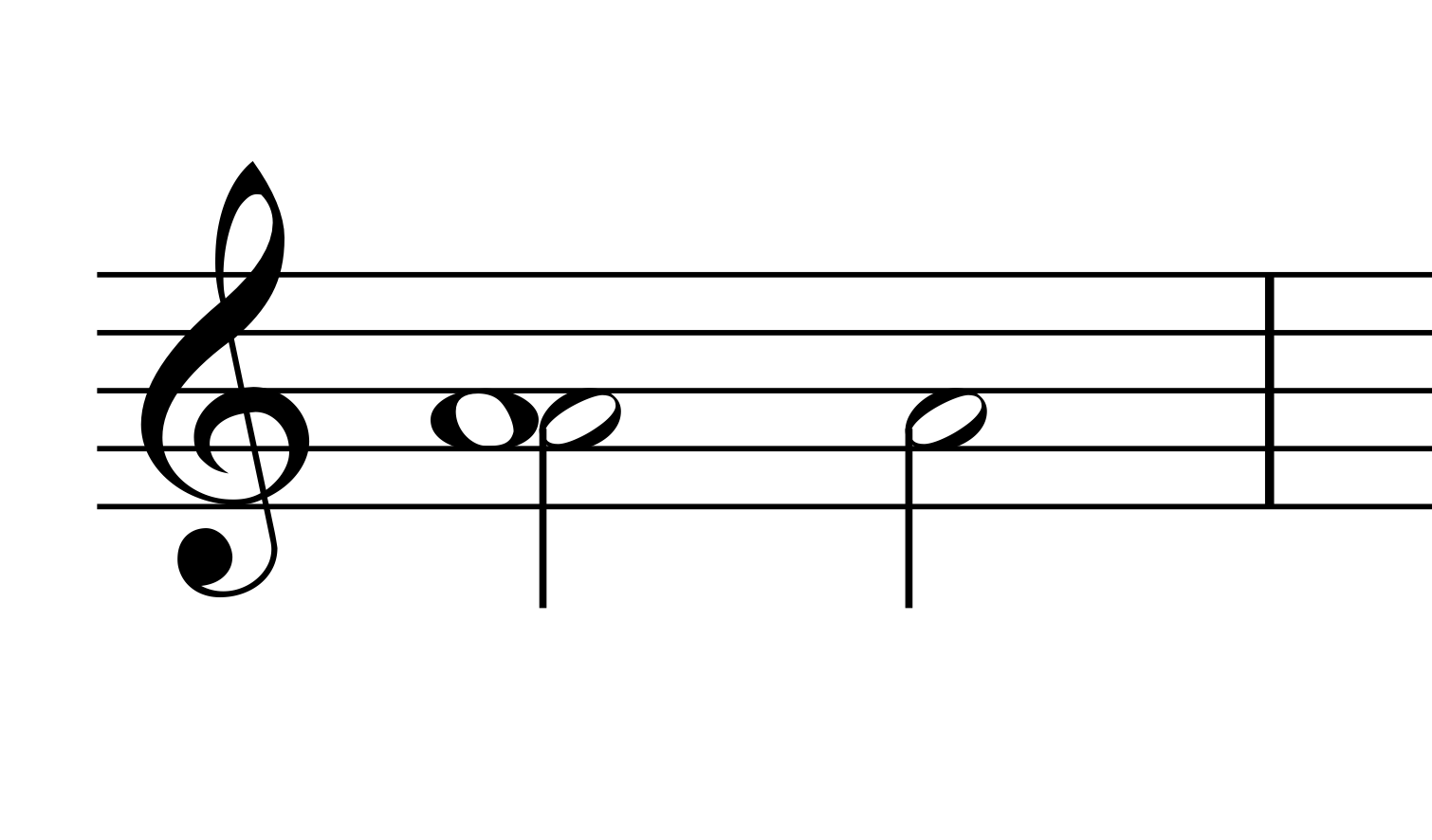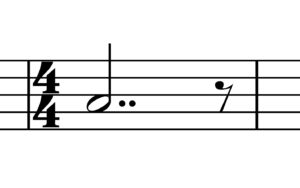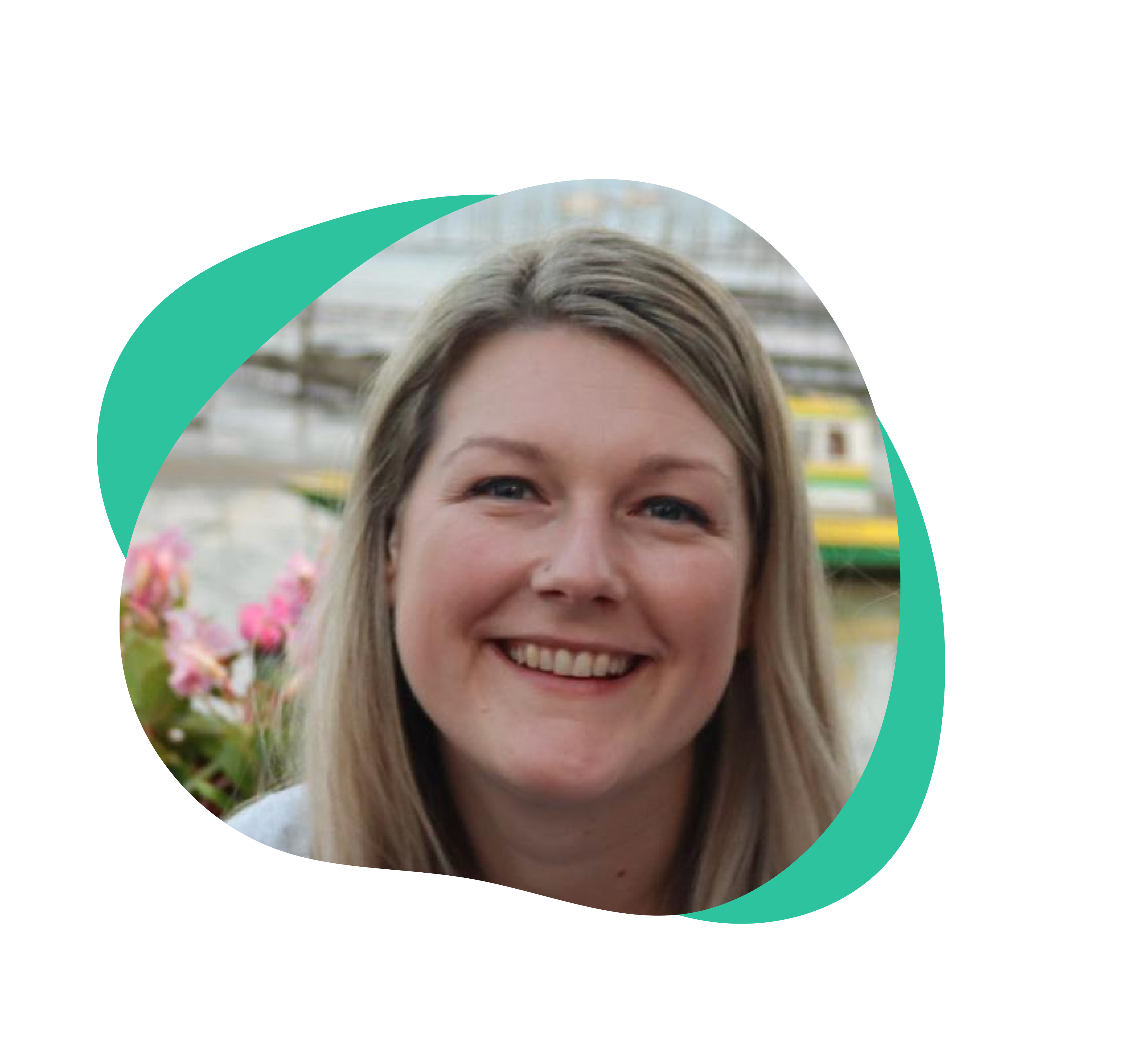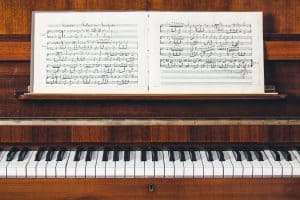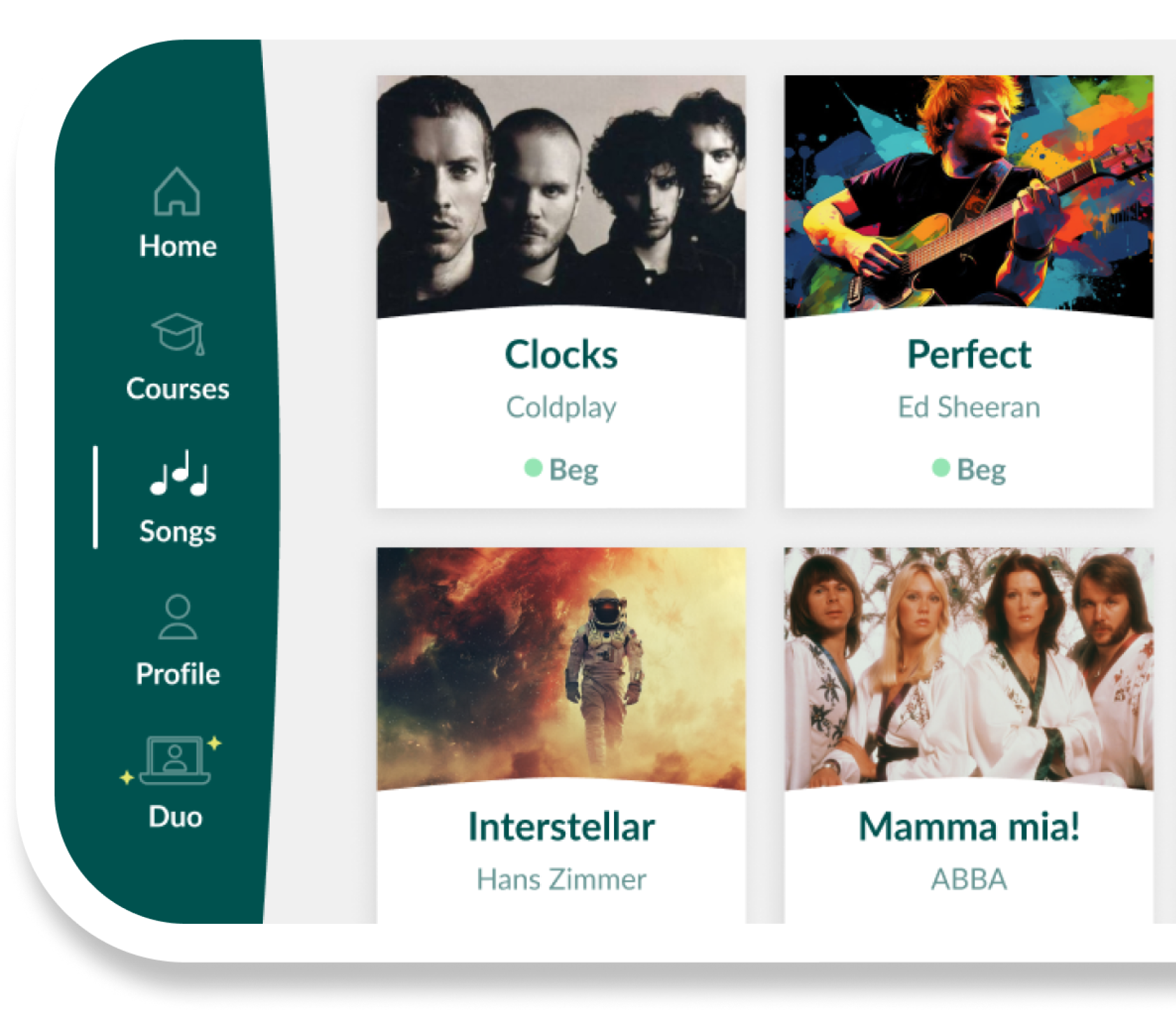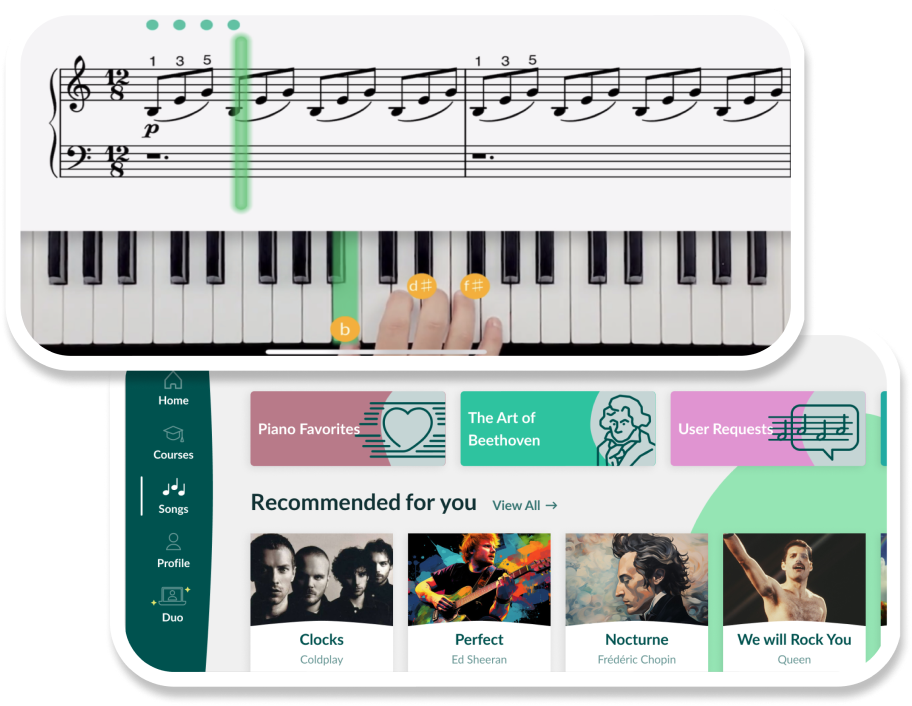Learning the notes on the piano and how to read them is important if you want to play your favorite songs. This guide is here to help you feel more confident about finding your way around the keyboard and understanding sheet music.
We’ll start by explaining what piano notes are. We will then show you how to play them in time with the music and how to follow special instructions that tell you how to play or when to slow down or speed up.
Learning piano key notes is a bit like learning a new language. At first, it might seem tricky, but with a little practice, it will start to make sense. Pretty soon, you’ll be able to play lots of different songs and have a bunch of fun at the piano!
- Fall in love with the music - Learn your favorite songs, at a level suitable for you.
- Enjoy interactive piano lessons - Explore courses covering music theory, technique chords & more.
- Get real-time feedback - Skoove's feedback tells you what went well and what needs practice.
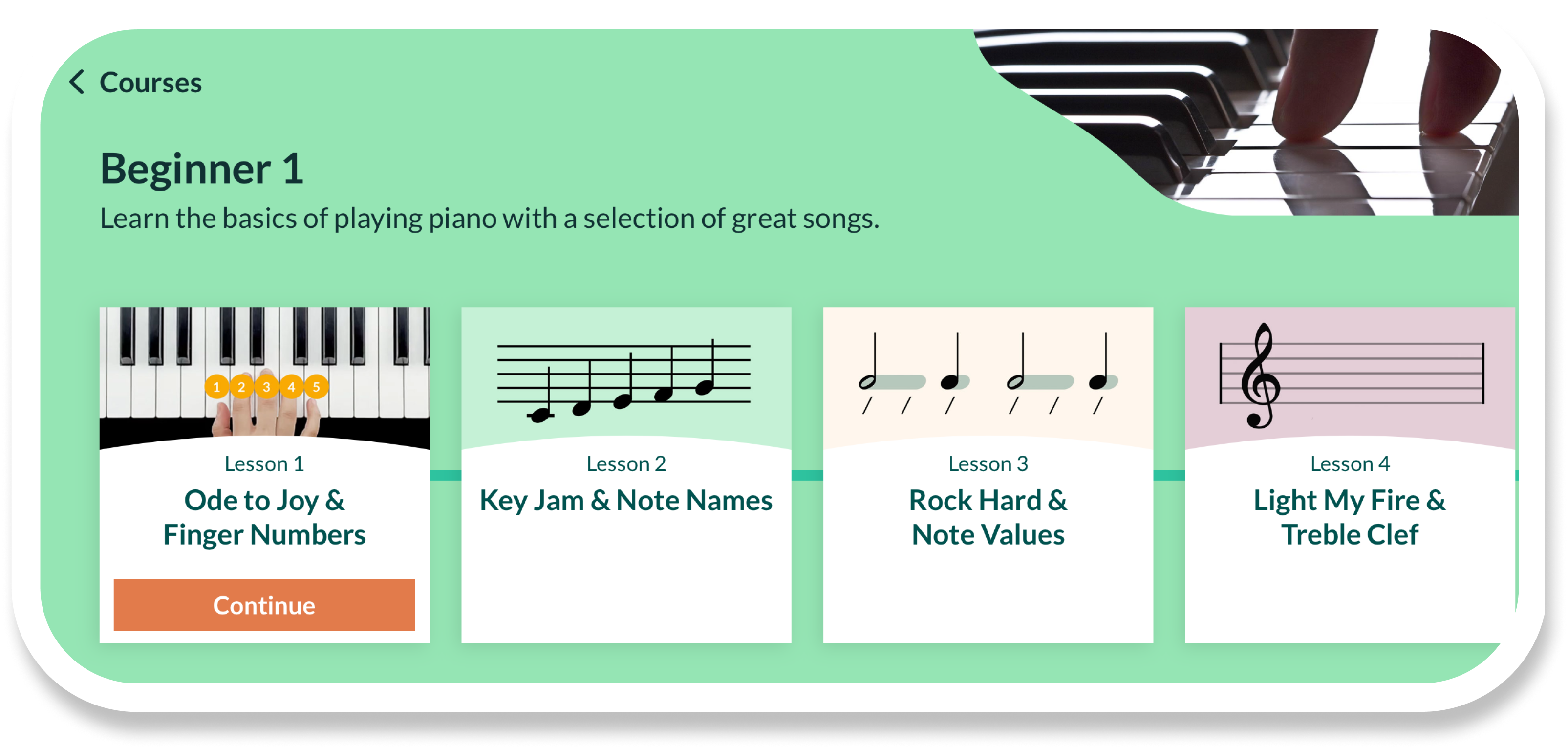
What are piano notes?
Each of the notes on a piano has a letter name, and they are ordered just like the English alphabet. In music, we use the letters A to G to label them, then the sequence starts again from A. Here are all the simple note names for the white notes on a keyboard:
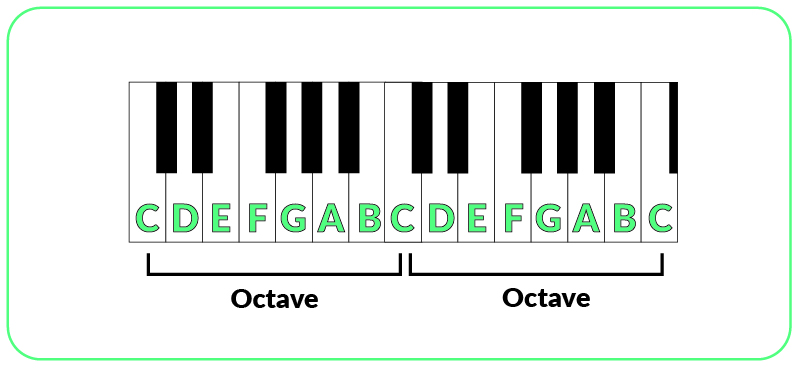
The black piano keys have names too but we will get back to that later in this article. If you’re looking to learn keyboard notes as a beginner, it’s best to start by focusing on the white keys. If you’re unsure where the notes on a keyboard are, remember:
- C is to the left of the group of two black notes
- F is to the left of the group of three black notes
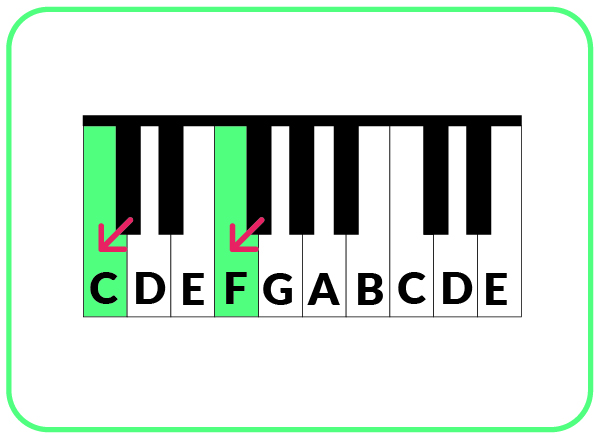
All the notes on piano are arranged in octaves with each octave consisting of eight notes (C, D, E, F, G, A, B, C). Moving further left on the keyboard lowers the pitch while moving further right raises the pitch. Usually the right hand notes are written in the treble clef and left hand notes are in the bass clef.
Sharps and flats
Not all piano music is played with the white keys. Piano notes on sheet music use symbols known as sharps and flats which alter written frequencies to notate use of the black keys.
- Flats (♭) lower a note by a half step, moving to the nearest black key to the left (or white key if there is no adjacent black key). E.g. E♭ (E flat) sits just to the left of E.
- Sharps (♯) raise a note by a half step, taking it to the closest black key on the right (or white key if there is no adjacent black key) E.g. G♯ (G sharp) is positioned directly to the right of G.
- Naturals (♮) are the white keys that represent the standard notes without any alteration. E.g., C♮ (C natural) is the regular C found on a white key.
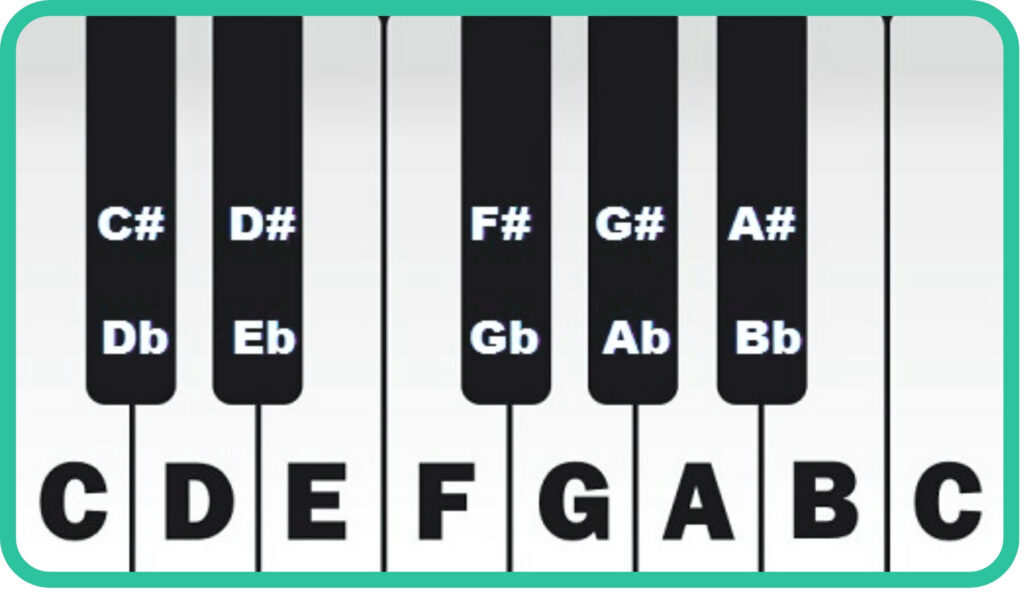
Once you’ve grasped all piano notes moving from one note to the next by way of intervals, and included some sharps and flats, have a go at trying some basic piano chords.
How to read piano notes?
It’s important to grasp how the notes are structured on a page. The treble and bass clefs, the staff and the placement of keyboard notes all play an important part in helping you navigate the keyboard confidently. Let’s break down the key components of easy piano notes for beginners.
The treble and bass clef
At the start of a piece of piano sheet music, you will see two symbols. These are the treble and the bass clefs.
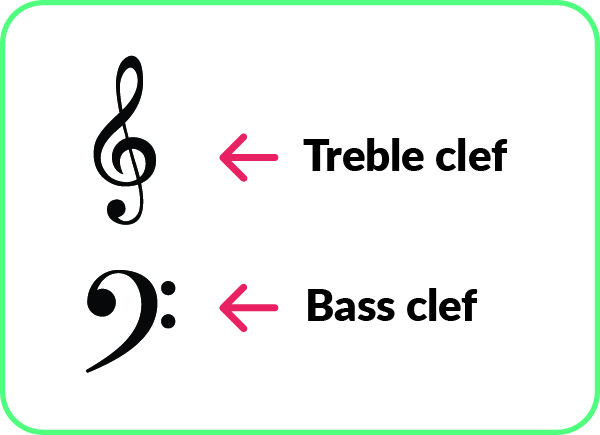
The staff
The treble and the bass clef each sit on a staff. The staff is made up of five horizontal lines with four spaces in between them. In piano music both staffs are held together by a brace. This is known as a grand staff.
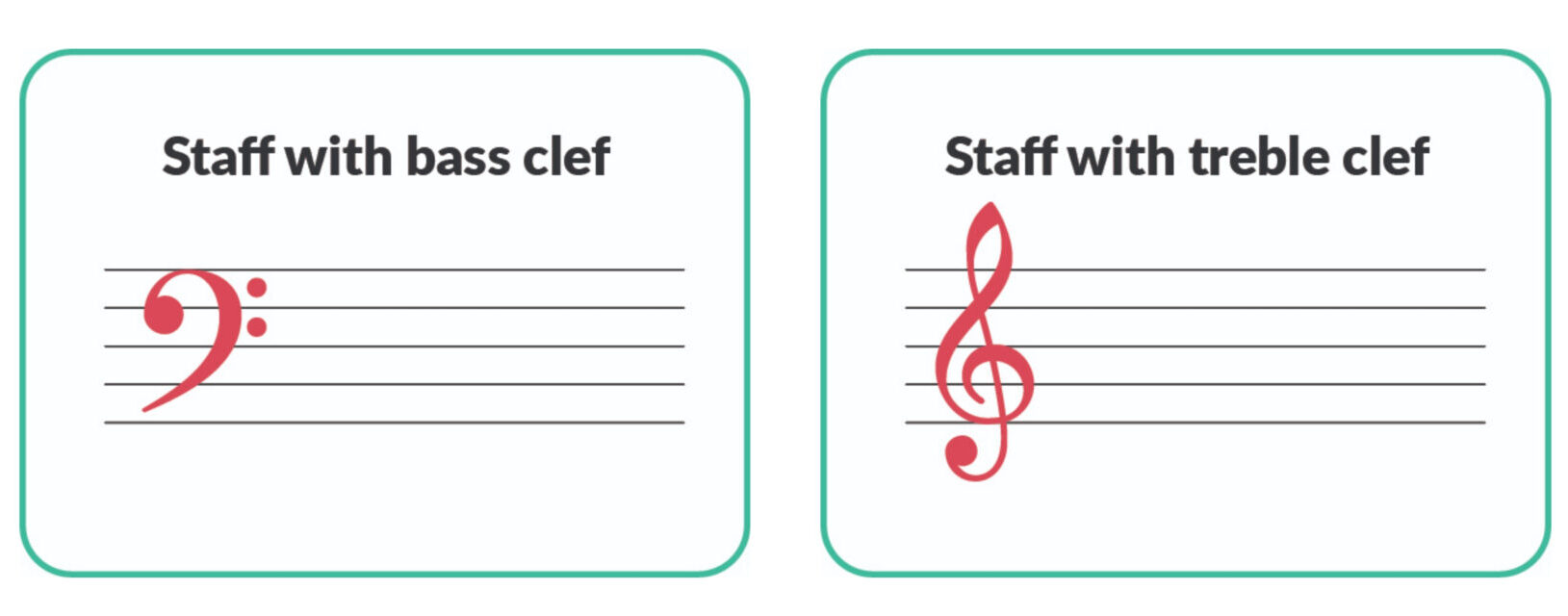
Note recognition
If you’re wondering how to learn piano notes take a look at the following images and then match up the mnemonics with the note names.
Treble clef:
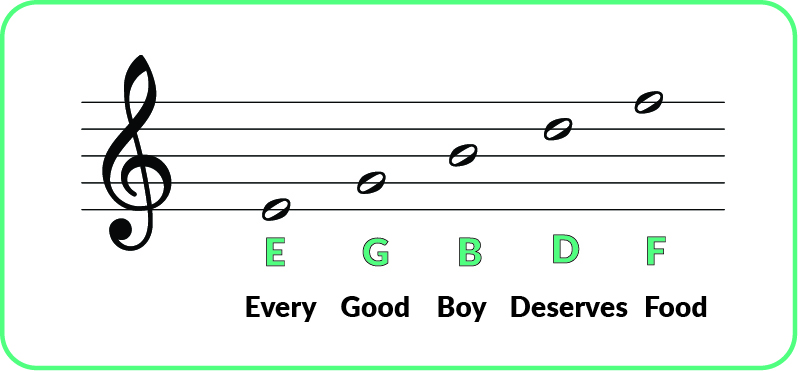

Notice that the combined mnemonics start from the bottom and move upwards alphabetically and apply to just lines or just spaces. The labeled piano notes for the spaces in the treble clef spell the word “FACE”, you can remember this as “FACE in the space”.
Bass clef:
The bass clef follows the same principle but with different note letters. This clef usually shows the left hand piano notes.
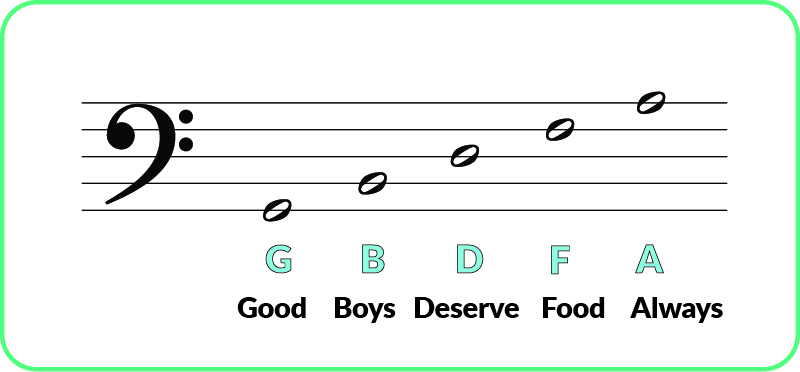
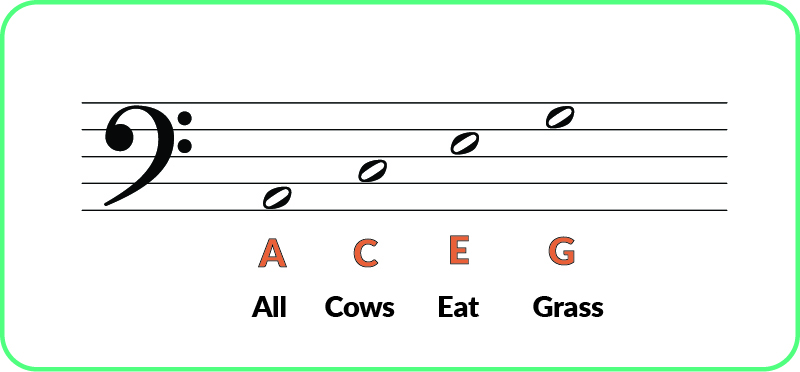
Piano notes chart
Notice how all piano keyboard notes stick to a repeating pattern across the keyboard following the musical alphabet. This chart is a great way to visualize the relationship between the bass and treble clefs, with all note names clearly labeled.

Our Skoove lesson on the song ‘Twinkle Twinkle Little Star’ is a fantastic way to practice the note recognition approach as well as our many other piano notes songs.
How to play in time?
Now we have learned how to read pitches on the staff so we can cover how to play in time. This will allow you to read and write music that follows a particular rhythm or pulse. Let’s look at the two main concepts behind musical timing, note values and time signatures.
Note and rest values
Musical note values tell you both where to play notes and how long to play them for. These values are dictated by making certain changes to the symbols we use to notate pitches through different flags, beams (combined consecutive flags) and note heads. This shows their relationship to a musical pulse or beat. Let’s start by breaking down the most common types of note value.
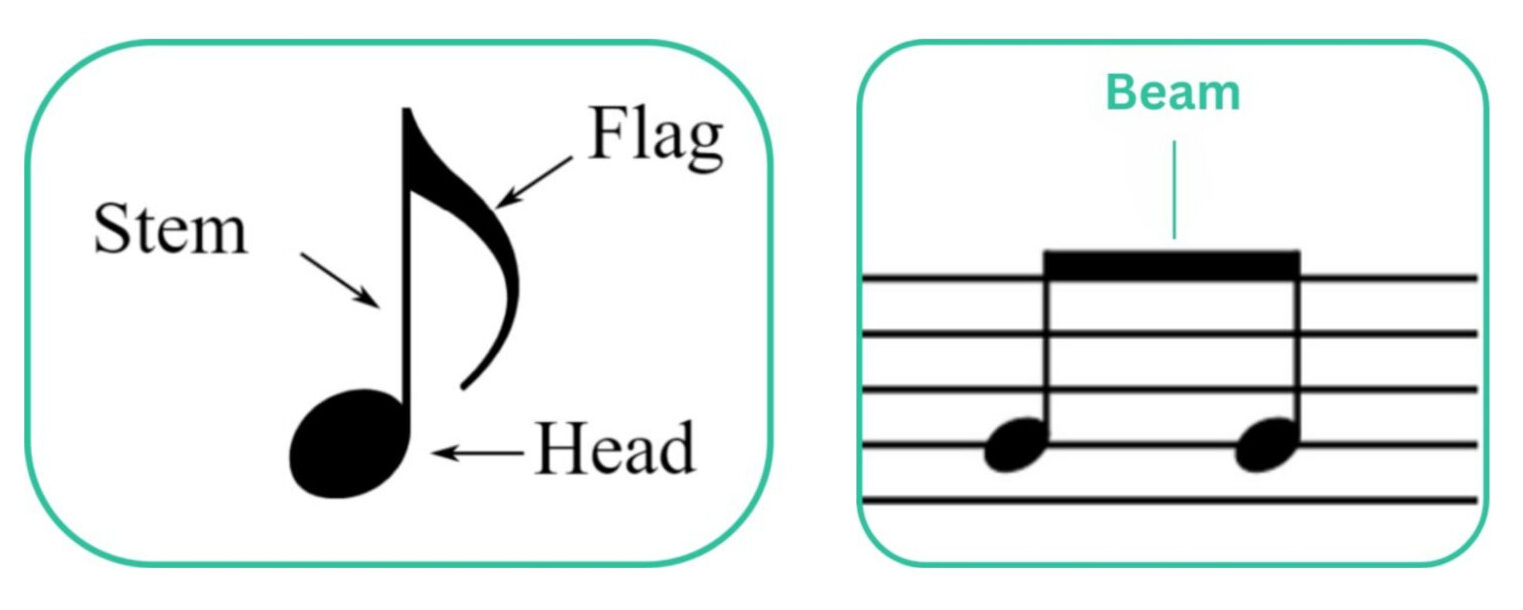
- Whole note/Semibreve: A whole note is represented by an open (hollow) note head without a stem. It typically lasts for four beats in common time (4/4), meaning you hold the note for the entire measure.
- Half note/Minim: A half note has an open note head and a stem. It lasts for two beats in common time, so you play it for half the duration of a whole note, filling half a measure.
- Quarter note/Crotchet: A quarter note has a closed (solid) note head and also has a stem. It lasts for one beat, meaning you can fit four quarter notes into one measure of common time.
- Eighth note/Quaver: An eighth note looks just like a crotchet but with the addition of a flag or beam. It lasts for half a beat.
- Sixteenth note/Semiquaver: A sixteenth note lasts for a quarter of a beat. This is shown by the addition of a second flag or beam.
Memorise how these notes look and familiarise yourself with what parts of the notes are called. These notes also have their equivalent in rests. Rests are notated silence in music and tell you when to leave space in music. Take a look at this handy table to help you memorise all these different values.
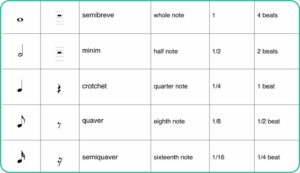
Ties, dotted notes and rests
A tie increases the length of a rhythmic value by combining two notes. A music tie is notated with a curved line linking two notes of the same pitch. These are not to be confused with the slur articulation.

With both dotted notes and rests dots can be added to the right side. Much like ties dots are used to increase note values. A dot adds half of the note’s value to the original duration.
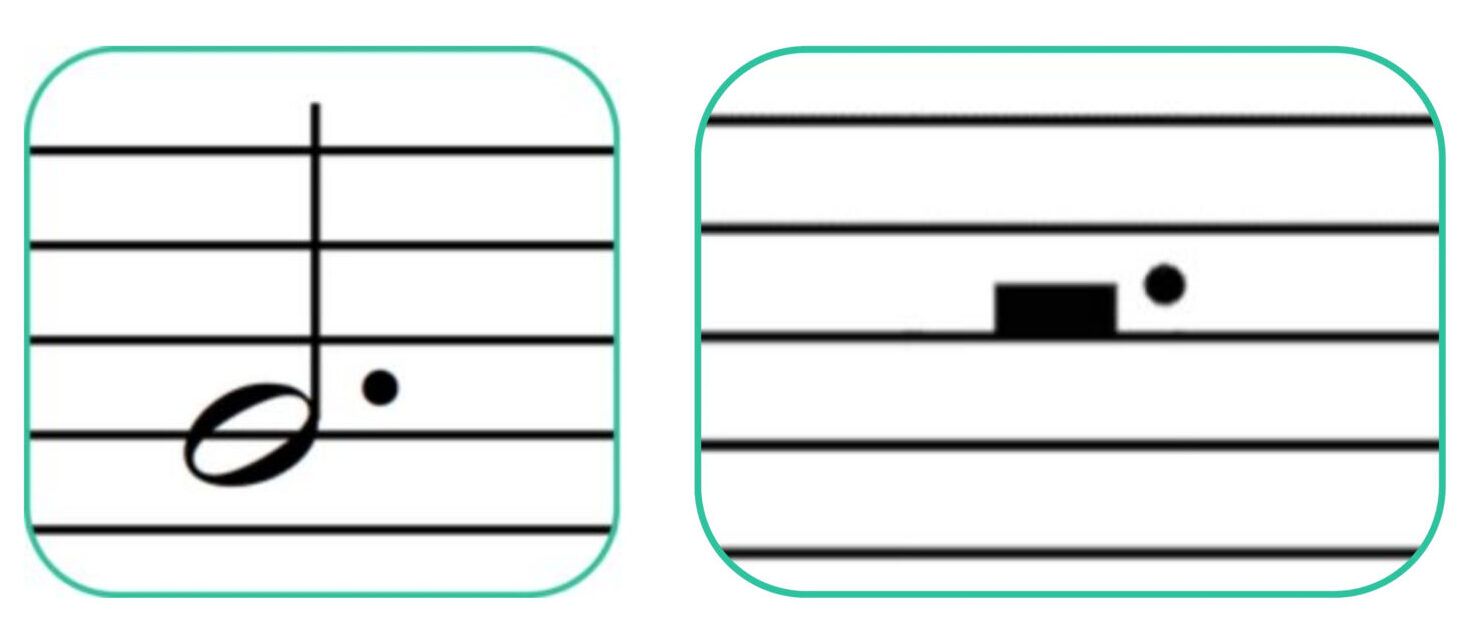
This dotted half note or rest is equivalent to three beats. As a result of the added dot the half note, usually worth two beats, has half of this value added on again (one beat) to create the full duration of this dotted note. This applies the same way to both rests and notes of any value.
Time signatures and bars
Time signatures determine the meter of a piece. They are made up of two numbers to show how to count each bar:
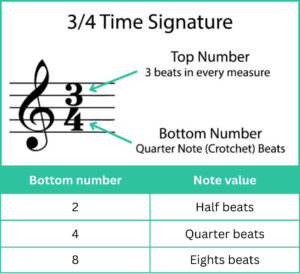
A widely used time signature is 4/4 where you count to four in each bar (four quarter-note beats per measure):

Another example is 3/4 where you count to three in each bar (three quarter-note beats per measure):

The vertical lines that are drawn through the staff split the music into measures/bars, making music easier to count. Any combination of the previous note values can be used in a bar to create rhythms as long as the total corresponds to the correct duration of a bar. Each measure and division of a time signature in music is marked with bar lines. Bar lines help musicians divide pulse, rhythms and phrases into easy to understand chunks.
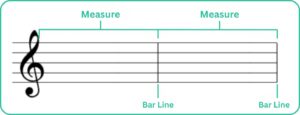
Tempo dynamics
Now we have the basics of pitch and rhythm it’s time to move on to how to add nuance to your playing. Tempo markings indicate how fast or slow a piece should be played. You may see a number and a beat duration telling you how many of this beat type occurs in a minute (BPM – beats per minute), or a written term. Most of these terms are in Italian and can be found on the online metronome.
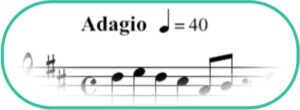
This shows that the tempo is ‘Adagio’ aka. 40 crotchet beats per minute.
💡Check out these common examples of music tempo markings in this handy, free downloadable PDF chart!
Counting and playing rhythms in time
Counting a pulse and understanding rhythmic placement are crucial aspects of playing piano. To get to grips with the rhythms we have explored begin by counting the beats of a bar keeping a steady pulse. This pulse will follow the tempo of the piece you are playing or learning.

This is called counting the beat. Not all musical rhythms are a steady pulse like this, some divide and make different rhythms around this steady beat. This beat is the way musicians measure rhythms and keep them in time.
Musical rhythms can be worked out by sub dividing beats in a bar and dividing them where necessary. To divide beats into eighth notes musicians count ‘1 and 2 and 3 and 4 and’, the ands being the half way between a beat.

This diagram shows how different note values and rhythms correspond to the beats in a bar of 4/4.
As you get more comfortable with rhythm you can start dividing the bar more and playing more complex rhythms and divisions of a beat. Try using what you’ve learned to follow along with one of Skoove’s hand lessons and you’ll get to grips with rhythm and counting in no time.
To explore these aspects, try the Skoove piano app and sign up for a free trial. As you have seen in this article Skoove offers a wide range of songs and lessons, including some excellent courses for improving piano technique. You can watch performances and slow down the speed as you learn, applying the tips discussed in this article. Happy note reading!
FAQ



